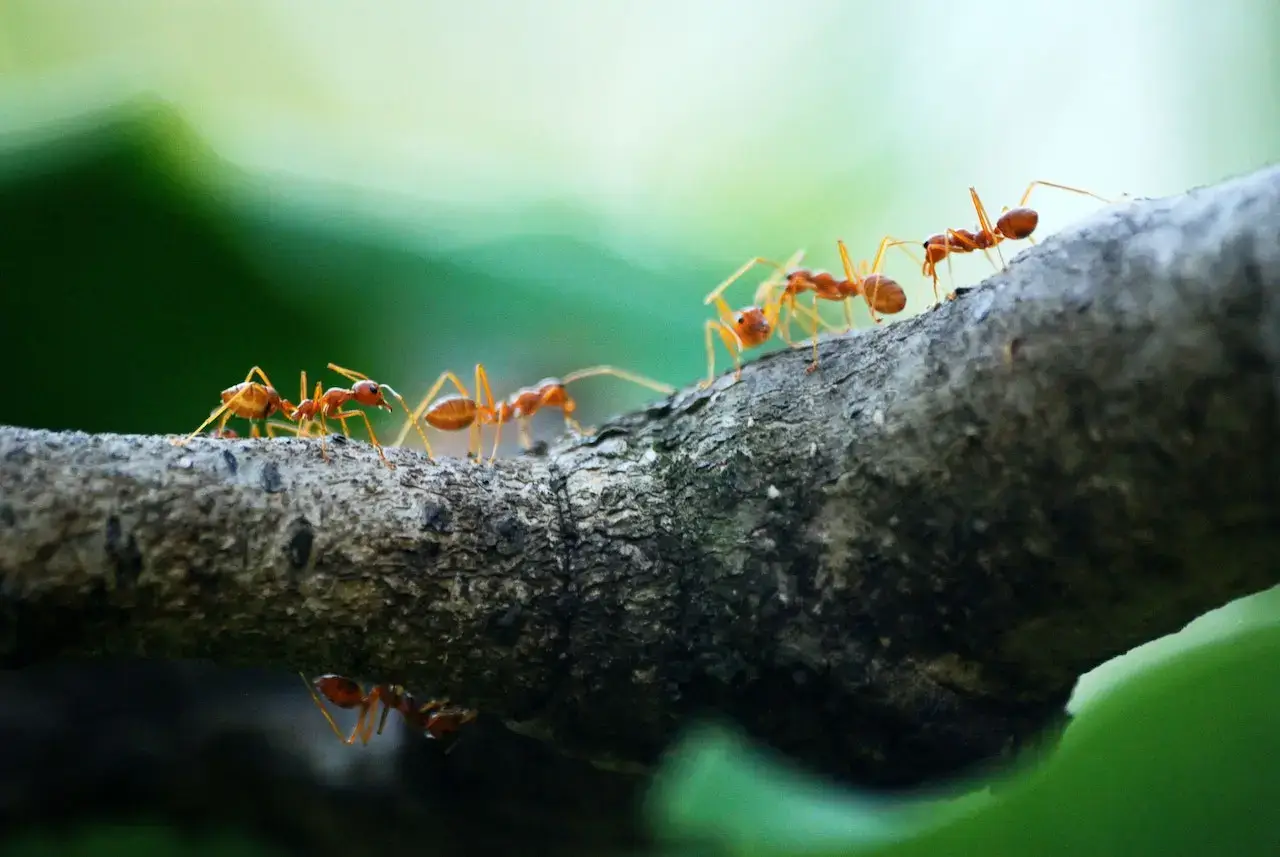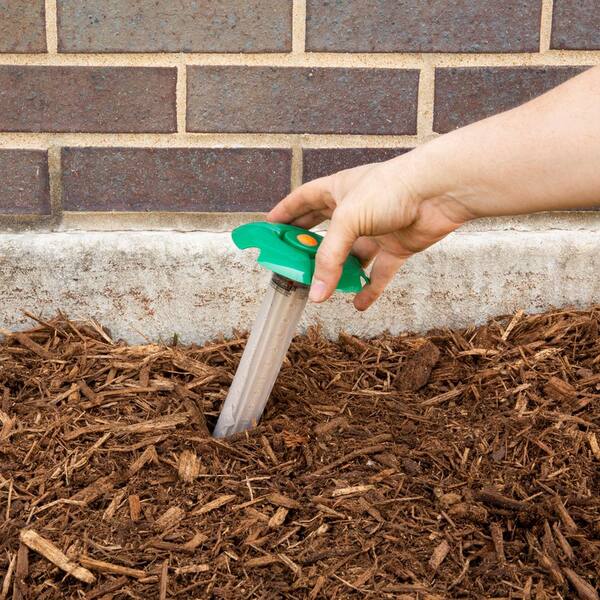Reliable Ant Control: Expert Services to Eliminate Ant Infestations
Reliable Ant Control: Expert Services to Eliminate Ant Infestations
Blog Article
Ecological Effect of Parasite Control: Balancing Effectiveness With Sustainability
The environmental influence of insect control is an important concern that requires a fragile balance in between accomplishing performance in guaranteeing and taking care of insects sustainability of our ecosystems. From the use of harmful chemicals that leak right into our dirt and water to the unintentional effects on non-target types, the repercussions of standard parasite control practices are far-ranging.
Dangerous Chemicals in Insect Control
The application of harmful chemicals in pest control poses considerable environmental and health and wellness risks that warrant mindful consideration and reduction methods. Chemicals, insecticides, and herbicides are commonly utilized to eradicate pests, yet their prevalent application can result in unintentional effects. These chemicals can pollute dirt, water sources, and the air, affecting not just the targeted pests but additionally advantageous bugs, wildlife, and human beings.

To address these threats, incorporated pest management (IPM) methods are being promoted as a much more lasting choice. IPM involves a combination of techniques such as biological control, environment manipulation, and the targeted use chemicals as a last option (ant control mocksville nc). By taking on a holistic technique to pest control, we can lessen the ecological and wellness impacts connected with dangerous chemicals while properly handling pest populaces
Impact on Non-Target Variety
Thinking about the unintended repercussions of pest control approaches, the influence on non-target types is a vital aspect that calls for complete evaluation. While parasite control measures intend to target certain insects, various other organisms in the ecological community may be inadvertently impacted. Non-target types, including valuable bugs, birds, creatures, and even plants, can experience indirect or direct injury from pesticide applications or biological control approaches.
Pesticides developed to battle a particular bug parasite may hurt pollinators like or all-natural predators such as ladybugs. Biological control agents, if not species-specific, can position dangers to unplanned targets, interfering with the ecological equilibrium.
To mitigate the effect on non-target types, integrated bug administration (IPM) methods that highlight an alternative approach to pest control are recommended. These techniques focus on making use of eco-friendly techniques, decreasing injury to advantageous organisms while effectively taking care of pest populaces. Carrying out thorough risk assessments and monitoring the outcomes of parasite control initiatives are crucial action in safeguarding non-target species and advertising total ecosystem health.
Dirt and Water Contamination
Unintended ecological consequences of pest control techniques expand past influencing non-target varieties, with substantial ramifications for soil and water contamination - ant control services. Pesticides, herbicides, and chemical plant foods used in pest control can leach right into the dirt and pollute groundwater, posing a danger to both aquatic and terrestrial environments.
Water contamination is an additional important issue connected with bug control techniques. Drainage from agricultural fields treated with pesticides can carry these chemicals into neighboring water bodies, influencing marine microorganisms and water top quality. Pollutants in water sources can have far-reaching repercussions, affecting not just marine life yet additionally human wellness through the usage of contaminated water or marine microorganisms. To minimize dirt and water contamination from parasite control tasks, incorporated parasite monitoring techniques that focus on sustainability and lessen chemical inputs are critical.
Air Pollution From Chemical Usage
Direct exposure to air-borne pesticides during agricultural applications postures a significant worry for air contamination control procedures. They can volatilize into the air and form unpredictable natural substances (VOCs) and various other airborne pollutants when chemicals are splashed onto plants - termite control. These chemicals can add to the formation of ground-level ozone, a major element of smoke that can have harmful results on human health and wellness, crop performance, and general air quality. Additionally, pesticide drift, where chemicals are lugged by the wind to unintentional areas, can result in the contamination of neighboring ecological communities and water bodies.

Techniques for Sustainable Bug Control
In the world of farming practices, executing sustainable bug control approaches is paramount for maintaining environmental equilibrium and guarding crop yields. Lasting bug control emphasizes making use of eco-friendly techniques to take care of parasite populaces properly while decreasing injury to non-target organisms and environments. Integrated Bug Monitoring (IPM) is an extensively taken on strategy that incorporates organic, social, physical, and chemical control approaches to achieve long-term pest administration options.
One key strategy in lasting pest control is promoting biodiversity within agroecosystems. By enhancing all-natural adversaries of parasites, such as parasitoids and killers, farmers can minimize the requirement for artificial chemicals. Crop rotation and diversity are additionally efficient methods to disrupt pest life process and develop much less desirable conditions for insects to grow. Furthermore, making use of pest-resistant plant varieties and employing methods like catch cropping can help in reducing bug stress without relying heavily on chemical interventions. Eventually, by incorporating these sustainable bug control strategies, farmers can accomplish an equilibrium between pest monitoring performance and ecological stewardship.
Verdict
To conclude, the environmental influence my explanation of parasite control approaches must be meticulously considered to balance effectiveness with sustainability. Damaging chemicals utilized in insect control can lead to soil and water contamination, air contamination, and harm non-target species - ant control. It is important to execute lasting bug control strategies to lessen these unfavorable effects on the atmosphere and advertise a much healthier community for future generations
By taking on an alternative method to pest control, we can lessen the environmental and health impacts connected with dangerous chemicals while successfully managing pest populaces.

To alleviate the air pollution caused by pesticide use, it is important to embrace incorporated parasite management techniques that prioritize the use of non-chemical parasite control techniques, such as plant turning, natural killers, and immune plant varieties. Lasting insect control emphasizes the use of environmentally pleasant approaches to handle parasite populations efficiently while minimizing harm to non-target microorganisms and ecological communities. Integrated Pest Monitoring (IPM) is an extensively taken on strategy that incorporates organic, social, physical, and chemical control techniques to accomplish lasting pest monitoring services.
Report this page